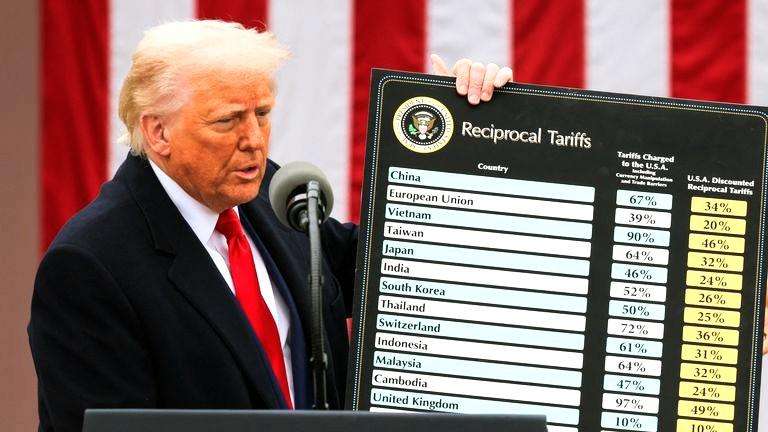Trade War Escalates: UK Faces 10% US Tariffs, Economic Fallout Looms- The UK is facing a 10% tariff on its exports to the United States, a move announced by President Donald Trump as part of his wider global trade strategy. The move has sent shockwaves through British businesses and sparked concerns about the potential impact on the UK economy.
The 10% tariff, described by Trump as a "reciprocal" measure, comes amid escalating trade tensions between the US and its major trading partners. While the UK had hoped to avoid being caught in the crossfire, the new tariffs are expected to have a significant impact on certain sectors of the British economy.
Industries heavily reliant on exports to the US, such as manufacturing and agriculture, are bracing for potential losses. Increased costs for British goods could make them less competitive in the American market, potentially leading to job losses and reduced economic growth.
The UK government has responded to the announcement with a mixture of concern and determination. Officials are vowing to work closely with businesses to mitigate the impact of the tariffs and explore potential avenues for negotiation. However, the prospect of a protracted trade war with the US is a major concern.
The imposition of these tariffs comes at a critical time for the UK, which is still grappling with the economic consequences of Brexit. The added pressure from US trade restrictions could further complicate the country's economic recovery.
Analysts are now closely monitoring the situation, assessing the potential impact on various sectors of the UK economy and exploring potential strategies to mitigate the negative effects of the US tariffs. The coming months are likely to see intense negotiations between the UK and US governments as they attempt to resolve the trade dispute and avoid further economic damage.
The Trump tariffs on UK exports to the US could have a significant impact on the British Bangladeshi community. Many members of this community are involved in industries that rely heavily on trade with the US, such as manufacturing and textiles. These businesses could face increased costs due to the tariffs, potentially leading to job losses and reduced economic activity within the community. Furthermore, the tariffs could also impact the supply chains of businesses owned by British Bangladeshis, disrupting their operations and affecting their ability to compete in the global market.








.svg)


